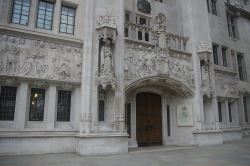 What is the duty of care that a police force owes to the citizens they protect? Should the police be liable if they fail to detect a crime? What if the police fail to act and this causes an injury? Do the police have a duty to protect victims or witnesses of crime? What if the police give a firearm to an officer who is unstable? The answer to all these questions for the most part has been that the police have no duty of care. In other words, any of these failures could happen and it would be difficult or impossible to bring a claim for compensation. That has been the case up to now, but change seems likely to follow after a Supreme Court judgment in February. The law that has changed relates to policy factors and when it is fair, just and reasonable for a duty of care to be owed. It would seem that the law will now be more in favour of compensating innocent victims of crime.
What is the duty of care that a police force owes to the citizens they protect? Should the police be liable if they fail to detect a crime? What if the police fail to act and this causes an injury? Do the police have a duty to protect victims or witnesses of crime? What if the police give a firearm to an officer who is unstable? The answer to all these questions for the most part has been that the police have no duty of care. In other words, any of these failures could happen and it would be difficult or impossible to bring a claim for compensation. That has been the case up to now, but change seems likely to follow after a Supreme Court judgment in February. The law that has changed relates to policy factors and when it is fair, just and reasonable for a duty of care to be owed. It would seem that the law will now be more in favour of compensating innocent victims of crime.
The Supreme Court confirmed in February that two victims of serial sex attacker John Worboys were entitled to a total of £41,250 in compensation. Worboys was the London black-cab driver who is suspected of having drugged and assaulted more than 100 female passengers. The case was shocking enough, but it has been made worse by the revelation of just how much the Metropolitan Police mishandled the investigation. The victims who brought the case were attacked early into Worboys’ crime spree, and rightly, the police’s inaction has been called into question. The first complaint against Worboys was made in 2003, yet it was not until 2009 that he was convicted of 19 offences against 12 women. Exact figures cannot be confirmed, but in the six years it took to convict Worboys, dozens of other victims could have been spared a horrific ordeal.
So why have the police up to now been able to escape liability for compensating victims such as those in the Worboys case?
Duties of care and policy factors
The answer is down to a simple concept called “the floodgates”. What this concept really encapsulates is that the police cannot afford to pay for all the potential claims that might be made against them. This principle was first raised in the case of Caparo v Dickman [1990] and has meant that the court, when deciding whether liability should be imposed, has to take into account factors such as whether a defendant is a publicly funded body or can afford to pay.
Public policy issues often arise in cases involving not just the police but also the Crown Prosecution Service (CPS), local authorities and the emergency services. While it helps these organisations to operate without fear of being sued for every misstep, it is the innocent victims of negligence by these organisations that pay the price. The Supreme Court victory for the two victims of John Worboys is absolutely the right decision, as the blanket immunity that the law has seemed to allow for some has struck many lawyers as grossly unfair to the victim of negligence.
The judgment is set to have far-reaching consequences. There will still be a very high bar for a claimant to prove that the police have made “significant errors” in their investigations, but at least it will now be possible for successful claims to be made against them.

